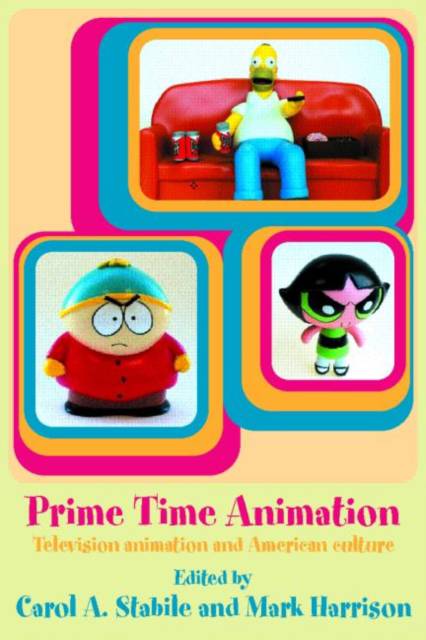
- Afhalen na 1 uur in een winkel met voorraad
- Gratis thuislevering in België vanaf € 30
- Ruim aanbod met 7 miljoen producten
- Afhalen na 1 uur in een winkel met voorraad
- Gratis thuislevering in België vanaf € 30
- Ruim aanbod met 7 miljoen producten
Omschrijving
In September 1960 a television show emerged from the mists of prehistoric time to take its place as the mother of all animated sitcoms. The Flintstones spawned dozens of imitations, just as, two decades later, The Simpsons sparked a renaissance of primetime animation. This fascinating book explores the landscape of television animation, from Bedrock to Springfield, and beyond.
The contributors critically examine the key issues and questions, including: How do we explain the animation explosion of the 1960s? Why did it take nearly twenty years following the cancellation of The Flintstones for animation to find its feet again as primetime fare? In addressing these questions, as well as many others, essays examine the relation between earlier, made-for-cinema animated production (such as the Warner Looney Toons shorts) and television-based animation; the role of animation in the economies of broadcast and cable television; and the links between animation production and brand image. Contributors also examine specific programmes like The Powerpuff Girls, Daria, Ren and Stimpy and South Park from the perspective of fans, exploring fan cybercommunities, investigating how ideas of 'class' and 'taste' apply to recent TV animation, and addressing themes such as irony, alienation, and representations of the family.
Specificaties
Betrokkenen
- Auteur(s):
- Uitgeverij:
Inhoud
- Aantal bladzijden:
- 272
- Taal:
- Engels
Eigenschappen
- Productcode (EAN):
- 9780415283267
- Verschijningsdatum:
- 27/02/2003
- Uitvoering:
- Paperback
- Formaat:
- Trade paperback (VS)
- Afmetingen:
- 161 mm x 234 mm
- Gewicht:
- 458 g

Alleen bij Standaard Boekhandel
Beoordelingen
We publiceren alleen reviews die voldoen aan de voorwaarden voor reviews. Bekijk onze voorwaarden voor reviews.











